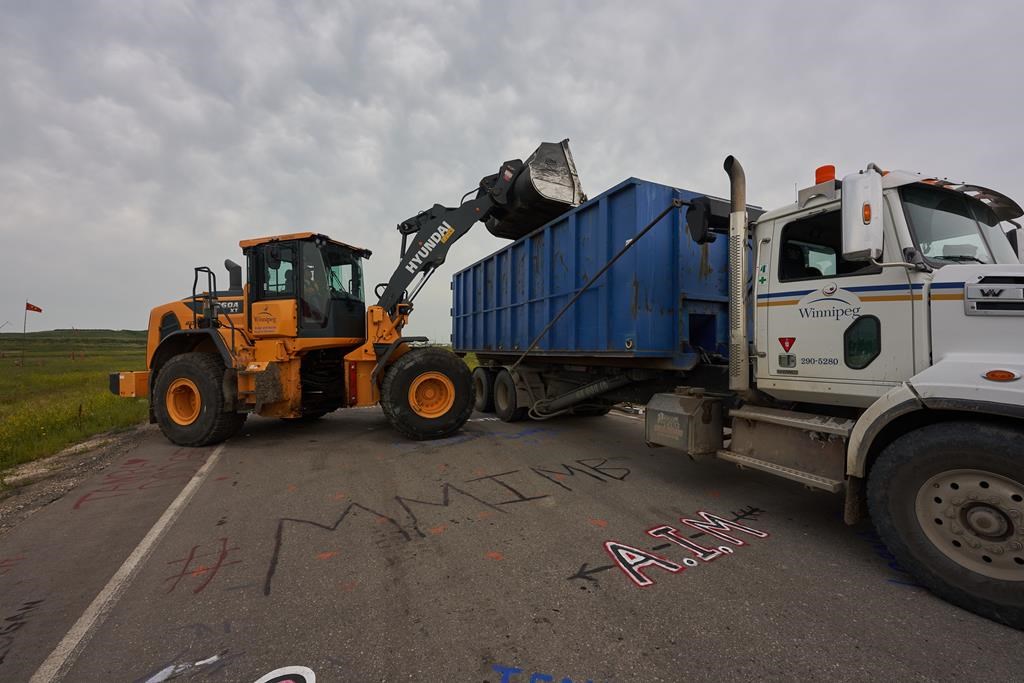The Manitoba government is looking at ways to increase monitoring and surveillance of garbage trucks and landfills following the slayings of four Indigenous women whose remains were dumped in trash bins.

Premier Wab Kinew and Families Minister Nahanni Fontaine say the government is accepting proposals from service providers with expertise in waste management and technology that could be used to track the trucks’ loads.
Serial killer Jeremy Skibicki was convicted of first-degree murder in the deaths of the four women in Winnipeg in 2022.
Police believe the remains of Morgan Harris and Marcedes Myran are at a privately run landfill, north of Winnipeg, but had declined to search it, citing concerns for toxic materials.
An Indigenous-led committee, which included the women’s family members, issued two feasibility studies outlining options to conduct a search safely.
The provincial government is going ahead with a search and says it will look at implementing some of the studies’ recommendations, including installing video surveillance at the entrances and exits of landfills and equipping garbage trucks with GPS.
It will also look at installing rear-facing cameras so operators can see what is being unloaded.

“For years, we’ve heard from (families) calling for this kind of surveillance,” Fontaine said in a release.

Get daily National news
“This is one more step we are taking to help protect some of our most vulnerable citizens.”
Skibicki’s trial heard he targeted the women at homeless shelters, then strangled or drowned them before disposing of their remains in garbage bins.
The killings came to light when a man looking for scrap metal found the partial remains of Rebecca Contois in a dumpster in Skibicki’s neighbourhood. More of her remains were discovered at a city-run landfill.
The trial heard city-operated garbage trucks are equipped with GPS, which officers testified helped them locate her remains at the landfill.
Investigators then learned the remains of Harris and Myran likely went to Prairie Green landfill, which does not use GPS.
The location is not known of a fourth unidentified victim Indigenous community members have named Mashkode Bizhiki’ikwe, or Buffalo Woman.

Kinew said his government will be working with the Assembly of Manitoba Chiefs and the Association of Manitoba Municipalities on future surveillance options.
He expects the process to be completed by next summer.
The families of Harris and Myran said in a joint statement it is reassuring to hear the province is listening to their demands so future families don’t have to go through what they did.
“Our families look forward to continuing this work, as there are still many calls from the (families) in the dark that deserve to be heard as we push for a better future for all,” said Cambria Harris and Jorden Myran.
The federal government has a support line for those affected by the issue of missing and murdered Indigenous women and girls: 1-844-413-6649. The Hope for Wellness Helpline, with support in Cree, Ojibway and Inuktitut, is also available to all Indigenous people in Canada: 1-855-242-3310.




















Comments